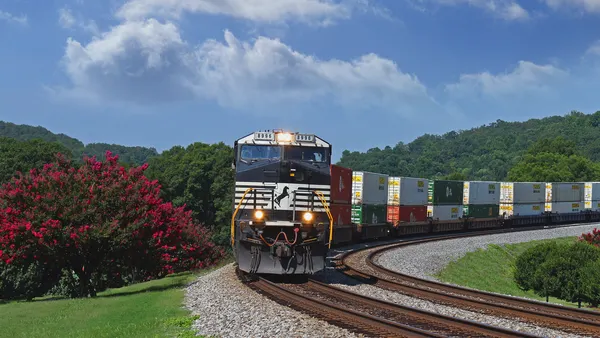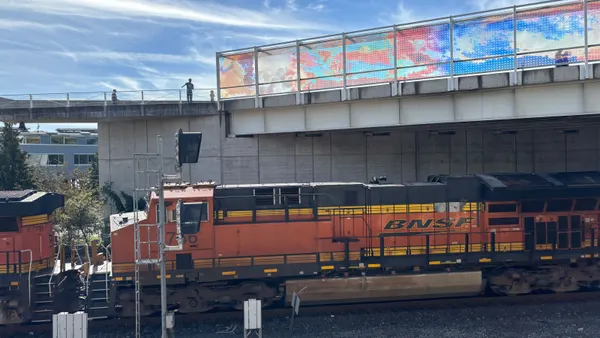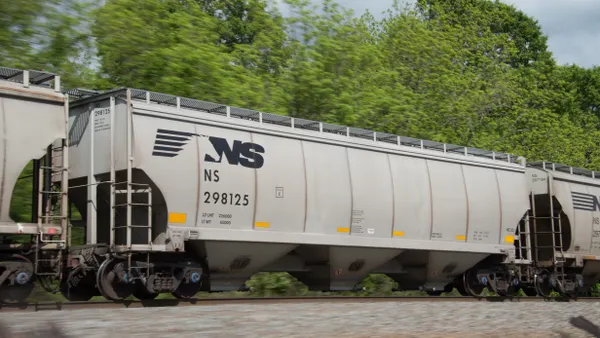Dive Brief:
- Canadian Pacific will restart operations Tuesday after agreeing to enter into binding arbitration with the union representing its conductors and engineers, ending a two-day work stoppage.
- The agreement with Teamsters Canada Rail Conference "enables us to return to work effective noon Tuesday local time," Canadian Pacific President and CEO Keith Creel said in a statement. The railroad will work with customers to resume normal freight operations as soon as possible.
- Canadian Pacific workers were locked out early Sunday after contract negotiations stalled over issues of pay, pensions and working conditions. The union represents 3,000 locomotive engineers, conductors, train and yard workers.
Dive Insight:
The agreement avoids the potential of more supply chain pain for businesses already beset by rising shipping and commodity costs. Canada is a major exporter of grains and potash, the ingredient used to make nitrogen fertilizer, and a prolonged work stoppage threatened to push up commodity prices and exacerbate supply constraints.
Binding arbitration typically involves both parties presenting their demands in front of an independent arbitrator, who will make a decision on the terms of a contract. The arbitrator's decision is final.
"While arbitration is not the preferred method, we were able to negotiate terms and conditions that were in the best interest of our members," said TCRC spokesperson Dave Fulton in a statement.
Wages and pensions continue to remain stumbling blocks in negotiations, the union said. TCRC had also pushed back against the possibility of workers taking government-mandated reset breaks away from their home terminals.
"This would extend lay-overs, or the time spent en route, by a minimum of 32 hours," Fulton said in a statement Friday. "However, the intent of this provision was to have the reset break occur at the home terminal to achieve proper rest and work-life balance."
The prospect of a work stoppage prompted some carriers to implement surcharges on vulnerable trade lanes and warn of other potential challenges. Maersk said that vessel wait times at the Port of Vancouver were already 28 days and a work stoppage could further exacerbate delays in the Pacific Northwest.
Shippers had also warned that a work stoppage would cause major production issues and add to supply constraints.
"The domestic market is extremely tight," Matt Preston, CFO of Intrepid Potash, said in an earnings call earlier this month. "If you look at the threat of the Canadian rail strike, if that were to happen, the U.S. market would become much, much tighter."















